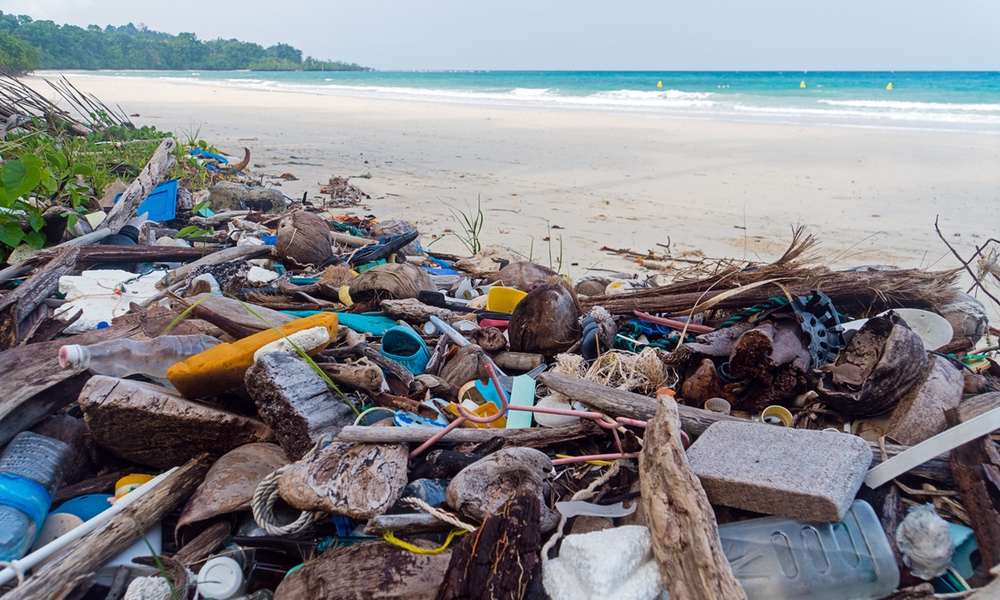It turns out that going without plastic bags isn't just a symbolic gesture, it's a measurable win for the environment. It is also good for our our hearts and our minds.
Communities across the United States that enacted plastic bag bans or fees are enjoying a nearly 50 percent reduction in plastic bag litter along their shorelines, according to a new study from the University of Delaware and Columbia University.
The research is unique because of the new method selected to measure the benefits of bag bans. “A lot of the previous economics literature on plastic bag policies have used checkout data at the store level,” one of the study's authors, Anna Papp, an environmental economist who received her PhD in sustainable development from Columbia University's School of International and Public Affairs, explained in a press release. “So, we were excited to add to that a direct measurement of plastic litter on these shorelines.”
For over 30 years, volunteers have been documenting the types of trash collected from shorelines, item by item, as part of the Ocean Conservancy's International Coastal Clean-up program. The researchers analyzed these records to compare the amount of plastic litter before and after plastic bag bans. They focused on the United States because it has no federal plastic bag policy. They compared the effects of different types of policies at the town, county and state level within the U.S.The United Nations is currently negotiating a global treaty on plastic pollution, and this study provides timely data for policymakers.
The result? They found plastic bag litter was reduced from between 25 and 47 percent in those areas with outright bans on plastic bags, and that the improvements only grow over time.
Some policies seemed to be more effective than others at reducing plastic litter. For instance, state-level policies had a bigger impact than town-level policies. Fees appeared to reduce litter more than bans, though more research is needed to understand why. Bag bans and fees were most effective in places where the plastic bag litter problem was more severe to begin with. While complete bag bans significantly reduced litter, partial bans, which often allow exceptions for thicker “reusable” bags, appeared to be the least effective at reducing plastic waste on shorelines.
“Overall, our findings do show that plastic bag policies are broadly effective in limiting litter along shorelines,” said Papp. “Ours is the first large-scale study to use hundreds of policies and tens of thousands of cleanups to look at their effects. But it is important to keep in mind that this is a relative decrease in affected areas compared to areas without policies.”
The findings come at a crucial moment. The United Nations is currently negotiating a global treaty on plastic pollution, and this study provides timely data for policymakers. However, plastic bags are just one part of the problem and they represent only about 5 percent of plastic waste found on beaches.
The bottom line? The study offers something rare in the climate and pollution conversation: proof that targeted policy can create visible results. With more countries considering bans or fees, these findings could accelerate global efforts to cut plastic waste where it hits hardest, in our oceans and on our coastlines.Plastic bags make up only about 5 percent of the plastic littering shorelines, however.
The study is published in Science.





